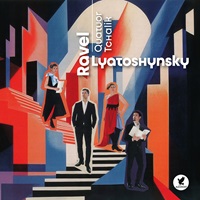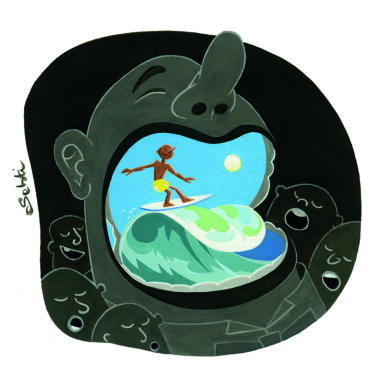Samuel Hasselhorn, First Prize at Queen Elisabeth International Music Competition 2018
Plus de détails
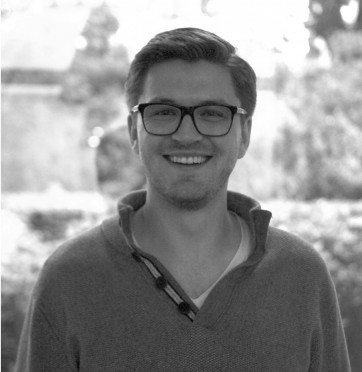
Samuel Hasselhorn has just been awarded First Prize at the Queen Elisabeth International Music Competition, Voice, 2018. The 27-year-old German baritone graduated from the Hochschule für Musik, Theater und Medien in Hanover (Opera singing) and from CNSMD in Paris (Voice), and is currently working in New York under the supervision of Patricia McCaffrey. He had already won many awards at various prestigious international competitions. He specializes in both German and French song repertoire, in which he brings us fresh, brilliant, and intense performances but in our opinion, he should also sing more opera in the future.
« In Belgium, almost everyone watches the Queen Elisabeth International Music Competition. »
ResMusica : Hello, and thank you for taking the time to answer some of our questions. How do you feel after this great Queen Elisabeth International Music Competition (QEIMC) Final evening?
Samuel Hasselhorn : It's strange, because someone recognized me after the semi-final, on my way to rehearsals and then there was this lady who said, « Félicitations ». I thought she was talking to someone else. Then she said, « C'est bien, c'est bien, félicitations » and then I realised that people were really watching the QEIMC! In Germany, we don't have any competition that is shown on TV. It's really amazing; I've never experienced this before. So, it's great, but it's something new to me.
RM : But the QEIMC is really popular in Belgium; didn't you know that?
SH : Yes, yes, I knew because I have a good friend who's a pianist. He'll be the official pianist next year for the violin competition and he told me that even the taxi driver knows about the QEIMC. He said that it's a huge thing. And it's crazy, because in Belgium, almost everyone watches the QEIMC. I know there's the Cardiff Singer of the World Competition and they have everything on TV but I didn't know anything like it. And we don't have such contests in Germany.
RM : But it's strange, because there's a lively classical music environment in Germany, isn't there?
SH : Yes, that's true but there are many small competitions. You know, one of the biggest competitions that I won was Das Lied, the International Song Competition, with Thomas Quasthoff *, and BBC came to record a documentary about him and the competition, so there was a camera crew there. But here it was something completely different – way bigger. I don't know; even if you came to the first round of the competition, the hall was full! And in the other competitions, it's usually the jury and a few other people, like the host families. That's it… like ten other people. And here, you come in and « Wow, a full audience for the first round! OK! » I asked a pianist who plays almost every afternoon and evening, and he said it's like that every time. I've got friends who wanted to come for the first round and tried to get a ticket in advance. But they couldn't, because it had already been sold out… It's crazy; I had never experienced that before.
RM : Yes; when you reach the first step of the CMIREB, that's a great achievement.
SH : Yes, it's like a concert. You get heard and you forget about the jury that's sitting in front of you. And you sing for the whole hall because there are so many people… and even if the jury doesn't like it, maybe they can appreciate it. It's a very nice thing to do for us.
RM : That was indeed one of my questions because you've been brilliantly rewarded in so many competitions. Why did you apply for the QEIMC?
SH : Two main things I have to say: first of all, I wanted to sing for this jury, because I really appreciate them. I appreciate all the artists that are there, the singers, but also the pianists and also the classical directors or intendants of opera houses because it's an audition for them, of course.
And the other thing is that this competition is so open to various repertoires. So, you can sing art songs, concerts and opera. You could even do this whole competition while singing one opera aria or one art song. You could do that… It's very cool because you're so free and you can show what you do best and what kind of artist and singer you are.
And, you know, there are so many competitions, big competitions that I saw: you just give them four arias and that's it. And I mean, I can do that, but it's not the kind of singer I am. I think I wouldn't be very successful in that kind of competition… So, I liked this one because I could do what I wanted and I believe, what I think is my strength, I think Queen Elisabeth was the perfect competition to do that.
And, of course, I knew Queen Elisabeth because I have a friend who won the violin session in this competition. But I honestly hadn't really thought about the big deal that this is, with the TV and everything.
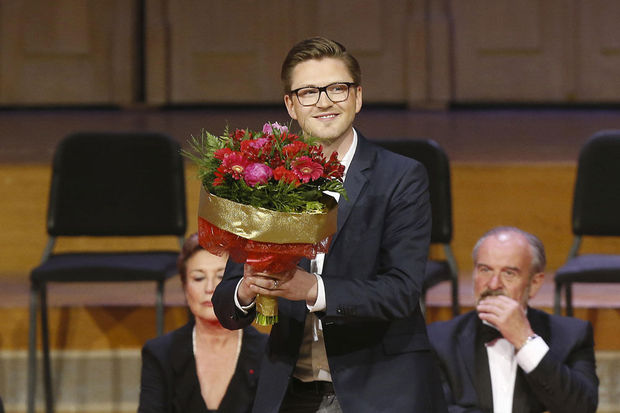 RM : Could you tell us something about your work with the orchestra? Yesterday, for the Final, it was quite interesting because from the audience, we had the feeling that at some moments, you almost guided the orchestra, at least towards some nuances…
RM : Could you tell us something about your work with the orchestra? Yesterday, for the Final, it was quite interesting because from the audience, we had the feeling that at some moments, you almost guided the orchestra, at least towards some nuances…
SH : The thing is that we don't have much time for rehearsals because they have so many rehearsals and then the concerts; they're so busy. So, what I tried to do was to be as precise and quick as possible to show the best I could in rehearsal of what I wanted to do and, of course, I talked to Alain Altinoglu. And in the pieces that I know well, I know pretty quickly one or two things that make the difference in a piece, if you do it really well… or not. Because, of course, this is a very great and professional orchestra. Of course, they'll play in tune, of course they'll play in time but, still, sometimes you think, « Oh, if this could be a little slower or a little more piano, that would be great ». So, I knew one or two things. I asked: « Could we make even less sound here? I think that could be very special ». Then we go from the Mendelssohn** to the aria dimension.
I think when it came to the performance, we were really listening to each other, I listened to the orchestra, the conductor; they were listening to me and I could feel during the performance that… not just the conductor, but also the concertmaster were really there. They'd seen me, they'd seen how I breathe, how I do things, they could probably see my face, and I thought that at some point they were really following me. That was a great experience, because that's when I think, singing and music are great. And it's not like a mechanical thing, like « OK one, two, three, here and now, you were late ». That's not what my thing is about. My thing is not always being perfectly together, always matching every single detail. I think it's more about the whole picture of music-making, of something that matters somehow to the people.
RM : You worked with Alain Altinoglu, conductor of La Monnaie-De Lunt Symphony Orchestra. Had you already met him?
SH : No, we had a piano rehearsal, here, at the office. I think he realized that for a singer, I'd say I'm pretty musical, in a way. Then I could also follow him, and I always like to take advice from the direction of someone who's more experienced than I am and also, of course, has ideas. Because it's not all about what I want to do in certain things; I think I can adapt pretty quickly. So, it was a really intense time but I think we did our best basically in the limited time we had to rehearse. So, I knew him before but not personally. It was a great collaboration; I really liked it.
RM : May I ask you how you built your competition programs, because they were really consistent.** And it was really interesting in the Final the way you linked the end of the Mendelssohn with the beginning of the Verdi aria. We got the distinct impression that you were proposing a real concert.
SH : I really like that, because it's what I tried to do. Because, quite often, you go into a competition and you hear people and you say « Oh, this is a hard aria, this is a hard aria… ». And, first of all, you've got to be a really good singer to sing all those bravura arias that no one can sing. You have to sing for twenty minutes, which is not too long, but you have to sing four, five arias; they are really hard and you've got to do them well.
I have always wanted to have a program that is a program. For this competition, you look for the list of the orchestra works, what the orchestra can play and what's on the list. So, you think: « I need something in this colour, in this mood… » but I also wanted to create something, and I was already thinking about the Mendelssohn and the Verdi aria.
When I checked the order of all I wanted to sing, I saw that the key, the harmony of the Mendelssohn to the Verdi aria, fits perfectly. You know, in the Mendelssohn oratorio, Elias says « It's enough, I want to give my soul to you; please take my soul. It's enough; I want to die… » and the Verdi begins and the character is dying there. So, these pieces have nothing to do with each other and are in different languages. They have different beginnings, different… whatever, but it's quite like a story going on… Then I thought it could be the same story in another language, another style, by another composer; but, if it was a German oratorio or if the first one was in French, it could almost be one piece. So, I thought I could show this. There are so many connections between music from different composers that we can show because the language is music and the poetry is still universal. Basically, I really wanted to do that and I'm glad that people appreciated it. And I didn't want anyone to clap between the two pieces so I talked to the technicians about the lights, asked them not to lower them and they did it really well. I was very happy. Because you can pick up the emotion from the first piece and take it to the next one, and that's special.
RM : I saw that you play the bassoon. Does it help you with your singing? Perhaps with the breath, the legato?
SH : I would say not too much for singing but I would say musically, yes, because you've got another background. I can't say that I could play the bassoon really well but I'm an amateur bassoon player, so I know how it works. It probably makes me understand how other instruments work and I know that an orchestra takes a little more time than the piano. The piano plays a chord and it's like « ping » right there; the orchestra is a little later so I understand this kind of thing. I also understand how to play, if it's chamber music, how to play a baseline and you know, how to take the intonation, if it's really high or low or something.
Technically, it can be tricky and I stopped playing the bassoon when I started to study singing and work at the Conservatoire, because the bassoon needs a lot of pressure and that's not really good for singing. But still, in the end, there are similarities, because we are kind of like a wind instrument; we need to breathe or play… I also like to watch cellists because I really admire how strongly they sit back really well. I like to watch them, part lying in their chairs, partly with their instrument, and in their sound. They sit there so strongly. I like to see that because I think that position affects the sound.
Singers should see that and learn from it. I think it's also the same for the instrumentalists. I know instrumentalists who say: « Sometimes, my teacher tells me to sing the phrase and then I know how to do it ». And it's important that we know how to « bow » our voice, how to play with breath, with melody and everything.
There are so many people who really work on their sound. Sometimes, singers forget to really work on their sound. They just work on… they know by heart how the piece should go but they don't really work on just the pure sound and get rid of the text, get rid of emotions, just work on really vocal technical singing one time! Because it's important and then the rest can come on top of that. But if you don't have that basis, you'll always have limits, I think I also really admire cello and bassoon because they are my voice; maybe it's the same for soprano and violin, I don't know.
« Sometimes, singers forget to really work on their sound. »
RM : You are obviously brilliant in German song repertoire. Could you tell us how you came to those art songs?
SH : When I started to study singing, I was eighteen years old. And, for example, especially for the Verdi aria I sang yesterday, an eighteen-year-old can't sing this aria and I am still too young, vocally too young, to sing the role onstage, I think personally. It's different to sing a single aria than the whole opera… At that time, I was listening to the older singers and thought: « Oh, those beautiful arias! », and when I tried them, I was just screaming and didn't sang that well. So, I thought I need to sing… I wouldn't say something easier, because lieder are not vocally easier, but sometimes they're not as high, and you don't have to care about the orchestra. There's just the pianist. So, I thought, you know, what I'll do is concert arias: Bach (because it's hard enough to sing Bach) and then Schubert.
Schubert wrote nice, cute songs that are not very high and not very low. Let's try them! And you can work on a lot of things in those songs. And then I listened to Bryn Terfel and Malcolm Martineau, who recorded Schubert. I was just fascinated by this music-making and this music in general and I listened to « Erlköning » which, of course, I knew because it's famous, but at some points in this recording, I thought the father seemed to be so mean! The father, I mean, not the Erlköning! And it fascinated me that you can actually listen to a song and the interpretation is personally so different here, the father in some way can sound a little angry, not caring about his child. So I was fascinated by this mix of music and poetry coming together, building this great art of lied or French mélodie, or English art songs. And I always like them. It's cool, I've never been interested in literature so much but through art songs, I thought: « Oh, this is a beautiful poem ». I think that's an important point, because we always have to use languages to express ourselves.
My opera singing can grow through my lieder because you actually use the words in a different way. Also, the lieder singing can be beneficial in a lot of opera, even just vocally. They all come together in singing and not in « Oh, this is an opera singer; this is a lied singer… ». We all can do certain things better; we probably sing in a certain style. Schubert singers don't sing Bach in the same way. We don't sing them exactly alike. That's how I came to art song. I think the poetry makes them different because sometimes it's great poetry, sometimes it's bad poetry but beautiful music. In Schubert, you have some really bad poetry but it's such great music. And sometimes, you've got gorgeous poetry but the music could be somewhat better, and sometimes they just fit so well together.
RM : You also had a Debussy on your program, so we thought that you were a long-time poetry lover…
SH : Well I tried to show, I thought… if you bring the standard arias to a competition, it's always a little tricky because there might be twenty other people singing those arias, too. Then, if someone sings this aria better, you can still be good, but maybe someone thinks: « Ooh, this person sings it better ». So, I think that it's important to sing songs of the repertoire because you know what is difficult about those arias and show « This is what I can do with it ». But I thought, first of all, I really like the Pelléas et Mélisande. I like Debussy and I thought perhaps not many people can do it because for baritone it's sometimes very high… Probably no one else will do it and it fits my voice well. The jury is composed of sixteen people. I don't want to sing the same songs over and over again. That aria fits my voice and it fits my personality, the singer who I am.
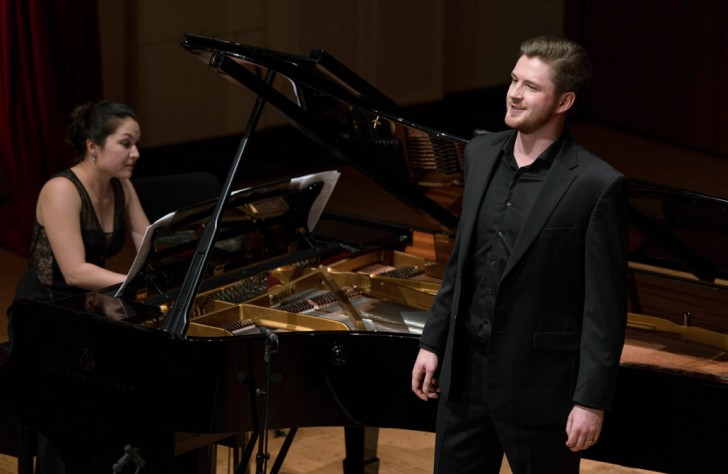 RM : Could you say a word about your on-stage behaviour, your stage presence? Because we thought you show it in such a, let's say, Schubertian way; Schubert didn't want his music to be overplayed…
RM : Could you say a word about your on-stage behaviour, your stage presence? Because we thought you show it in such a, let's say, Schubertian way; Schubert didn't want his music to be overplayed…
SH : I think it's important that you show what's going on in each piece of music. In « Erlköning » you have the son and the father, the narrator and the Erlköning. Even if some people don't understand the German words, they see that it's another person speaking and think: « Oh, this is so scary ». Even if they don't understand the words, I think they get the story and are scared, and it's exciting. And it's not about what you have done to play the father and then the kid; I think it's just enough if you look in a certain direction. For me, over-acting in art songs is a little disturbing because I think it takes away from the music and poetry. Even in Bach; Bach, Schubert, they knew what they were doing. There is so much strength in their written music that we should just do what they wrote. Try to do what they wrote because it's hard enough. Just to feel the emotion, I think, is enough and I don't necessarily need to see more. It might be different from opera but I still think that the real emotion is way stronger than anything. If I try to act when I sing a very sad song, and I try to be very sad or happy, it doesn't come across… It can be small but strong inside and everyone can get it.
« Over-acting in art songs is a little disturbing because I think it takes away from the music and poetry. »
RM : I wanted to know whether you've got an idea of your next projects. You already have a consistently very busy schedule with recitals and a « Stabat Mater » to come. Now, in addition, there are the great recitals QEIMC will plan for you…
SH : Yes. I want to say I'm busy all next year but my next season is full enough. But, of course, then I know there are the QEIMC concerts. There are always parts that are stressful but I have QEIMC concerts coming up, recitals coming up, one opera project… I like that, because it involves different places, different people and experiences that you learn from.
RM : It's really balanced…
SH : Yes, I like that. I wish right now I could do a little more opera. I need the time. I could say I want to sing right now in big halls… that can also be stressful and if you say « Oh, it's a big room » and you start screaming, that can be dangerous. Slow and steady is better than trying to force something quickly.
RM : Finally, could you just tell us if there is something you try to achieve through the music, for the music, or for some personal objectives?
SH : Well I think it's a hard question but I think I would be happy to sing in a concert, whatever it is, and I don't want to say that the way people are moved or touched is automatic but I want to reach people. I want them to take something from the performance, whatever that is. If it's something positive or negative, happy or sad, I want them to take away something personal. You don't know what they'll take away. When I go to a concert, sometimes I have days when I'm very receptive and I feel something very emotional and all of that really moves me. And if I go to the same concert but I've had a bad day, I'm just not open to anything. So you can't control that but the most important thing is to reach people, and that's what I want to do in a way. It's not always all perfect performing, perfect singing; of course, there are certain steps that you should learn and I think it's important to work technically every day but it's more about reaching the people, whatever the emotion may be.
* Samuel Hasselhorn has been awarded 1st prize at 2017 Das Lied Competition; Thomas Quasthoff was a juror at that competition.
** Samuel Hasselhorn's programme during 2018 QEIMC Final:
Gustav Mahler (1860-1911): Wo die schönen Trompeten blasen, Wer hat dies Leidlein erdacht? (Des Knaben Wunderhorn). Felix Mendelssohn (1809-1847): Es ist genug (Elias op. 70 ). Giuseppe Verdi (1813-1901): Carlos écoute – Ah, je meurs (Don Carlos). Baryton, Samuel Hasselhorn. Orchestre Symphonique de la Monnaie, dir. Alain Altinoglu.
Photos: first picture © The Morgan Library; Portrait of Samuel Hasselhorn © Émilie Vanderhulst; The first prize Queen Elisabeth competition 2018 © Belga; Renate Rohlfing and Saumuel Hasselhorn in 2017 © Martin Walz




